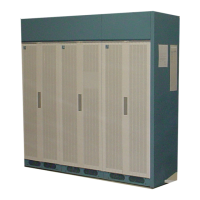General QLPS Protocol Handler (GQPH) Considerations
....................................................................................................................................................................................................................................
Overview
This section discusses the engineering considerations for the general
QLPS protocol handler (PH).
Note: The GQPH section does not apply to DRM/VCDX.
Capacity
The GQPH processes up to 2.3 million calls per hour for both the
IOST and IOSE models. It processes up to 2 million calls per hour for
the PSTNGW-LT model.
Configuration
requirements
Table 4-8, “GQPH Configuration” (4-11) illustrates the engineering
configurations required to support a GQPH.
Table 4-8 GQPH Configuration
SM Global SM-2000
DF2/NCT2 Timeslots 24 per QLPS side X 2 QLPS
sides
PSU Type PSU2 equipped with DF2 packs
PH Hardware TN113
Recommendations
PH33 boards used for GQPHs should be spread across different power
buses and fuse groups for added reliability. Refer to PSU2
“Recommendations” (4-6) for additional detail.
It is recommended that GQPHs are engineered active load shared.
Each shelf that has one or more GQPH channel groups assigned
should have at least one spare PH33 to allow softswitching of the
GQPH channel group to the spare PH33 board during routine exercise
(REX) and application of software updates requiring PH file
replacement.
Equipage
The number of GQPHs is dependent on the number of SS7 QPHs that
may be sharing the same GSM PSU2. The sum total of SS7 QPHs
and GQPHs may not exceed 16 per SM-2000 or 59 per office.
Each GQPH supports two 24-Network Control Timing Link 2 (NCT2)
Timeslot Qpipes, one to each QLPS side. This is twice the amount (12
timeslots) that an SS7 QPH supports. The maximum engineerable
number of GQPHs and QPHs is subject to the 256 timeslots available
Engineering Considerations
....................................................................................................................................................................................................................................
235-200-118
Issue 3.02B, March 2007
Lucent Technologies
4-11

